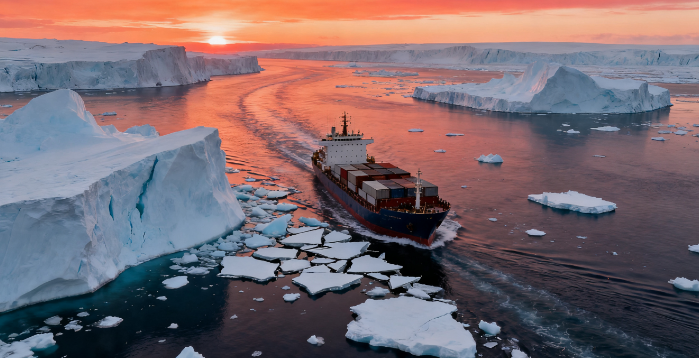
Beijing and Moscow have agreed to jointly develop and commercialize the Northern Sea Route in Russia's Arctic region. Last week, in Harbin, China, the head of the Russian state atomic energy corporation Rosatom, Alexey Likhachev, and China's Minister of Transport, Liu Wei, signed this agreement. Rosatom is responsible for Arctic shipping and Russia's fleet of nuclear-powered icebreakers.
This meeting is part of the cooperation committee established for the Northern Sea Route. Russia views the Northern Sea Route as a vital transportation artery for the 21st century, offering faster and more efficient connectivity between Asia and Europe. Likhachev stated, "Today's decision will further advance Russia and China's cooperation in developing the potential of the Northern Sea Route and enable us to translate these cooperative opportunities into large-scale capital projects. Our cooperation can diversify global trade routes."
China has been actively seeking new routes connecting Asia and Europe, such as the emerging Northern Sea Route. Last week, the Panama-class container ship Istanbul Bridge of the Sealegend shipping company set a record for Arctic navigation, completing the journey in just 5 days. The voyage from Ningbo-Zhoushan in China to Felixstowe in the UK took 20 days, significantly faster than the 40 days through the Suez Canal. Plans are underway to establish a regular China-Europe Arctic Express service during ice-free summer routes.
This new agreement comes after increased cooperation between Russia and China in the region, covering investments in the energy sector to joint naval patrols off the coast of Alaska. This summer, Chinese research vessels, including several icebreakers, conducted months-long voyages in the Arctic Ocean for scientific research to optimize commercial shipping operations. The Arctic shortcut is seen as a potential alternative trade route to the Suez Canal, especially during several months of summer. Russia has welcomed international operators on this route, but the traffic on this route has nearly halted since the outbreak of the full-scale conflict in Ukraine, with even Western operators now using it sparingly. Last year, 95% of international Arctic shipments flowed from Russia to China. This autumn, a non-ice-class tanker was stranded on this route for several days due to end-of-season sea ice.
